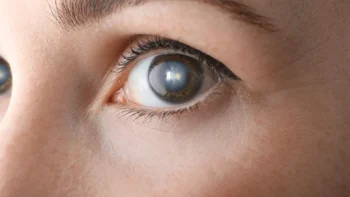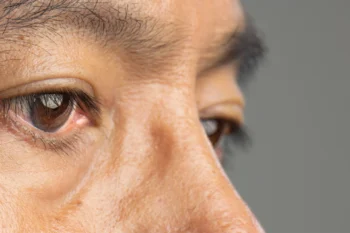If you struggle with visual acuity, you are far from alone. In fact, around 12 million people aged 40 or above in the United States have impaired vision. For 8 million of those people, the issue is due to uncorrected refractive error. Fortunately, there are many proactive steps you can take before you reach that point, like vision correction.
Vision correction refers to a variety of surgical and non-surgical interventions to help improve blurred vision. Each approach changes how the light gets refracted onto your retina — but in its own distinct way. Here is everything you need to know.
Non-Surgical vs. Surgical Vision Correction: How Do They Differ?
For milder vision issues, non-surgical interventions may solve the problem before you need a more invasive measure. However, surgical options provide more permanent results and better address more severe problems.
Non-Surgical Vision Correction
There are several forms of vision correction that don’t require surgery. They include:
1. Glasses
Prescription lenses are the leading way to control refractive errors like nearsightedness or farsightedness. Some of the most popular types include:
- Single-vision glasses
- Bifocals
- Trifocals
- Progressive lenses
2. Contact Lenses
Contact lenses provide similar results as glasses but not as noticeable. They are prescription-strength clear discs that sit directly on the surface of your eye. They were invented to treat hyperopia, myopia, and astigmatism (in some cases).
3. Eye Drops
For some people with blurry or distorted vision, the culprit is dry eyes. In this case, over-the-counter eye drops are enough to correct the impairment.
4. Corneal Reshaping
Corneal reshaping — also called orthokeratology or ortho-K — involves wearing specific contact lenses for at least several hours each night, which effectively reshapes your cornea to provide clearer vision for the following day. This option is not typically covered by vision insurance.
Surgical Vision Correction
There are four main types of surgical vision correction. They are:
1. ICL
Visual implantable contact lens — commonly known as ICL — involves a Las Vegas eye doctor making adjustments to your vision by implanting a lens behind your eye’s natural lens and the iris. After this procedure, your vision will be immediately corrected and you will no longer have a need for glasses or contacts.
The lenses in ICL are each specifically and accurately designed for the patient’s particular refractive error. While this treatment provides permanent results, it is also easily reversible.
ICL is often a good option for people who aren’t good candidates for LASIK, since they offer similar results. It also requires less recovery time and carries a lower risk of corneal complications.
2. PRK
Photo-refractive keratectomy — or PRK — corrects your vision by reshaping your cornea. Your Las Vegas eye doctor removes the surface cells with a solution and then uses an extremely precise laser to reshape your cornea. Afterward, they will put a protective contact over your eye to let the cornea grow back for roughly a week.
It typically takes a PRK patient 2 to 3 weeks to recover and return to clear vision. However, it’s considered by many to be a safer alternative to LASIK.
3. Clear Lens Exchange
Clear lens exchange — also known as refractive lens exchange, clear lens replacement, or clear lens extraction — involves replacing the lens in your eye with an entirely new, artificial one. It’s the same process as cataract surgery.
Because the new lens is specifically designed for each patient, vision should be clear immediately. It’s an ideal option for people who have cataracts starting to form, as it makes cataract surgery obsolete.
4. LASIK
Laser-assisted in-situ keratomileusis — or LASIK — is the most commonly performed laser refractive surgery. Similar to PRK, LASIK involves reshaping your cornea.
LASIK Vision Correction Procedure: What To Expect
Although LASIK surgery may sound daunting, it has an excellent track record. Complications are rare, and the majority of people are satisfied with the results. On average, people achieve 20/25 vision or better after LASIK surgery. Moreover, the procedure itself only takes several minutes.
On the day of your procedure, all you will need is a way to get home safely, as you will not be able to drive post-op. Prior to the procedure, your Las Vegas eye doctor will assess your eyes and take detailed measurements. Then, they will use a specialized laser to alter and flatten the curvature of your cornea with precision.
Most patients are able to see clearly within 24 hours after the procedure, although it may take a few days for some.
Who Might Benefit From Vision Correction?
The only definite way to stay on top of eye health and determine what interventions need to be taken is by getting regular eye exams.
As common as eye diseases and issues are, they often go unnoticed for a long time. Only qualified eye doctors can accurately detect when something is going awry and act early to preserve your vision long-term. Additionally, treating vision loss is most effective in the early stages.
Getting an eye exam at least every one to two years helps you and your doctor manage visual acuity issues. Changes in your eyesight may only require a non-surgical intervention or an updated prescription. On the other hand, your eye doctor may start a conversation about surgical forms of treatment.
What Is the Ideal Vision Correction Age?
Although age does play a part in determining which procedure is right for you and when to get it, existing eye conditions and cost are also important factors.
For example, you must be 18 or older to receive LASIK eye surgery, as vision can fluctuate throughout your teenage years, especially if you have myopia. You will also be unable to get LASIK if you’re currently pregnant, breastfeeding, or using steroid drugs, since they can also affect your vision.
Other medical conditions that can increase your risk of complications with surgical intervention include:
- Diseases or conditions that lead to an impaired immune system
- Diabetes
- Certain chronic pain conditions
- Depression
Visit a Las Vegas Eye Doctor to Take Advantage of All That Vision Correction Has to Offer
Speaking with an eye doctor near you can help you determine which form of vision correction is right for you. They can go through the various non-surgical and surgical methods, give you a thorough exam, discuss your eyesight goals, and go over what to expect as far as the procedure and cost.
If you’re in the Las Vegas area, visit Brimhall Eye to talk to Las Vegas eye doctors who will help you figure out the best way to take care of your eyes. Sharper, clearer vision awaits you.





